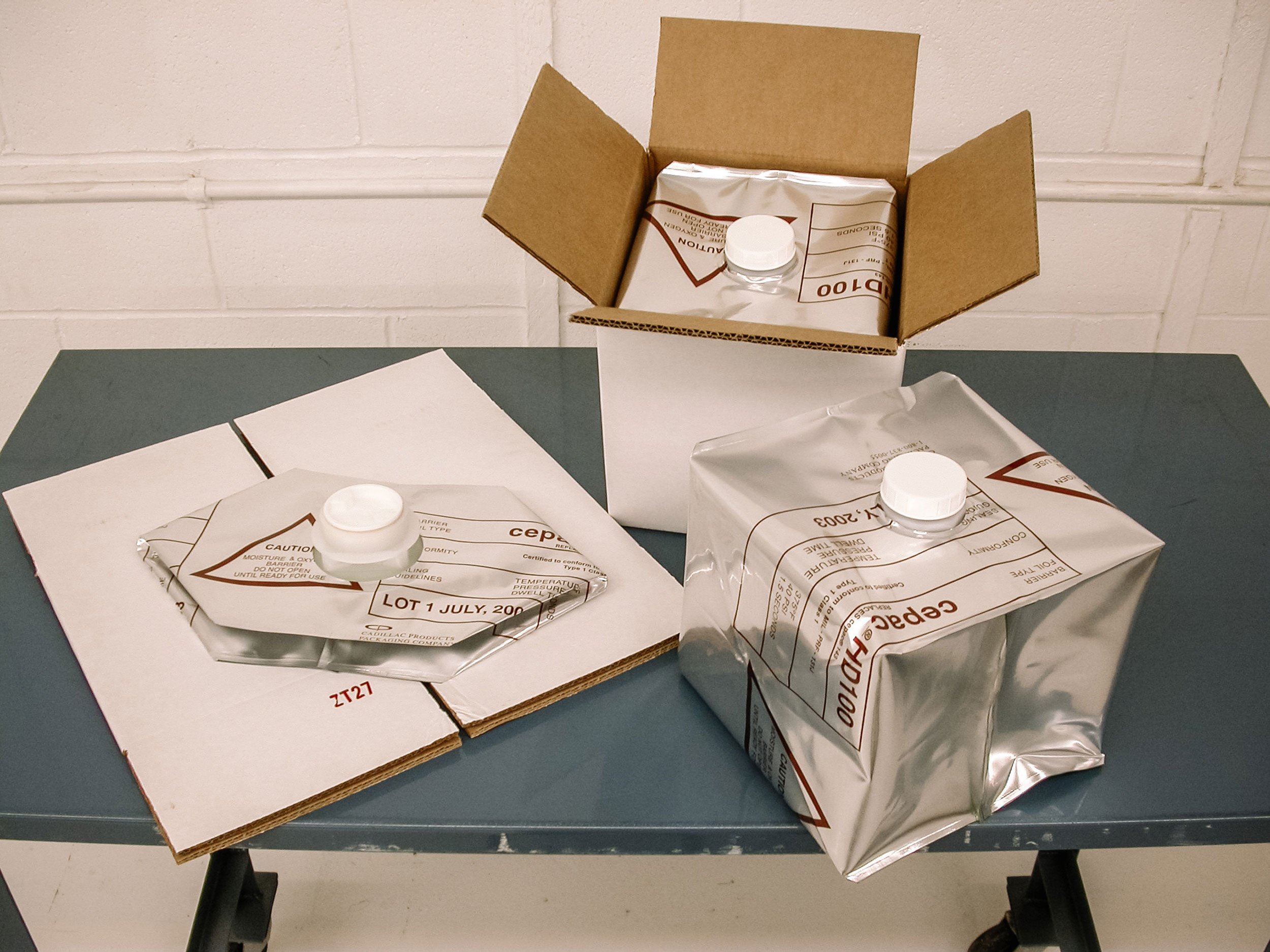The Difference Between BiB & B-I-B
Do you know which style you really need?
While BiB and B-I-B look and sound similar, they are two completely different products, and it’s essential to know which is needed for your application to avoid confusion, wasted time, and packaging products that don’t meet your application’s needs.
Boil-in-bag (B-I-B Bag)
Bag-in-box, or BiB bags, are typically bags or pouches with ports and spouts installed that contain liquids. The bag is placed in a corrugated box for storage or transportation. Examples include wine and other beverages, adhesives & coatings, reagents, and microbial fluids.
Boil-in-bags, or B-I-B bags, are used in food packaging. These bags contain food that is warmed or cooked in boiling water before consumption. (i.e. retail pouches for camping, hunting, backpacking, etc., and also larger bags used for rehydrating freeze-dried foods for Military and institutional uses.)
Bag-in-Box (BiB bag)
The acronyms (B-i-B and B-I-B) are used interchangeably, depending upon who is using them. So, it is always important to clarify which product you are expecting; a Boil-In Bag for foodstuffs, or a Bag-in-Box package for liquids.
At Heritage Packaging, we make both BiB and B-I-B bags. Each order is tailored to customer specifications for configuration, size, and material; and with great consideration given to the nature of the contents and how the packaging is handled, stored, and transported.
Flexible packaging is an expansive industry that includes many different products for a multitude of industries. With so many packaging solutions, there’s bound to be some crossover and confusion. We often see businesses unknowingly ask for improper materials, heat seals and closures, etc. due to a lack of technical knowledge that only packaging professionals would know. When you work with our team of engineers, machine operators, and hand fabricators, you can count on getting the perfect package.
If you want to keep learning, be sure to sign up for our newsletter in the footer to have our content delivered straight to your inbox.
Need to talk to our team about your specific challenges? Send us an email, fill out our quote form, or give us a call to see if an engineered flexible packaging solution is right for you.


